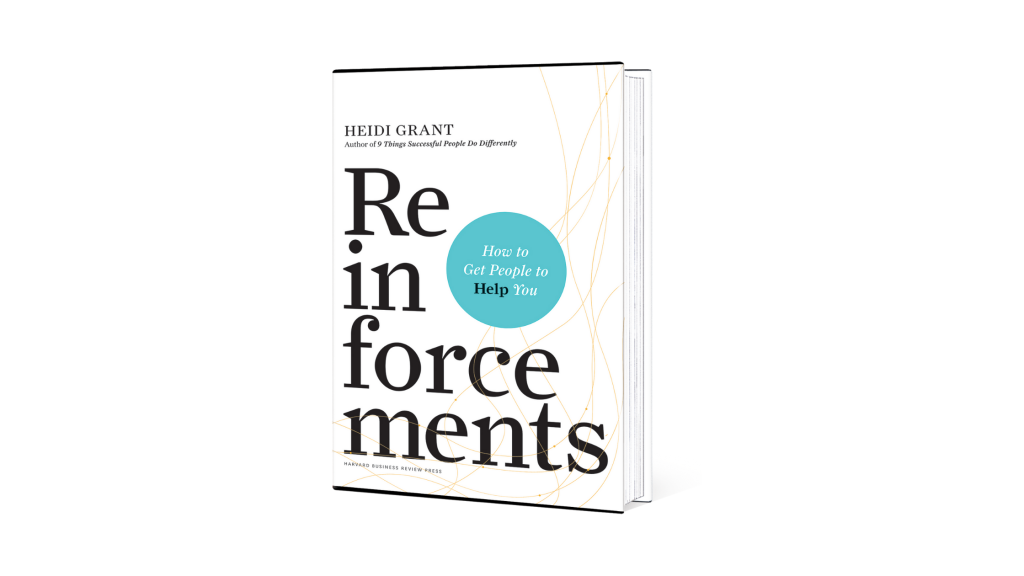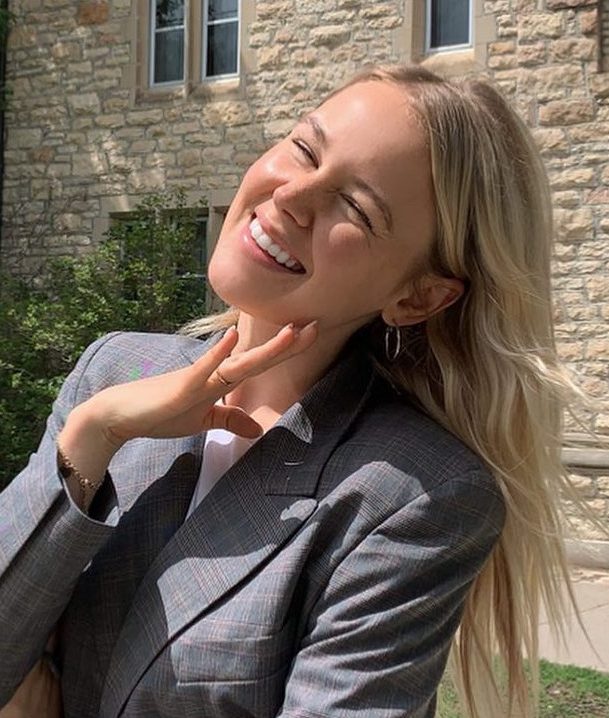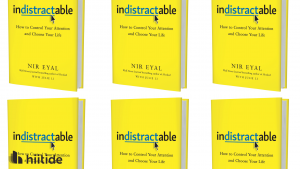
“Helping and being helped are win/win situations. You get the help you need, and the people helping you get increased well-being; self-esteem is related to helping.”– Heidi Grant
Dr. Heidi Grant is the Chief Science Officer for the Neuroleadership Institute, Associate Director of the Motivation Science Center at the Columbia University, and author of six best-selling books, including: “Reinforcements: How to Get People to Help You”, “No One Understands You and What to Do About It” and “Nine Things Successful People Do Differently”.
In 2017, Grant was named one of Thinkers50’s “most influential management thinkers” globally.
Dr. Grant’s Reinforcements Online Book Club is a scientific dive into the pain we feel when asking for help. Heidi’s thought-provoking anecdotes and study specific evidence retrain our brain to seek help without feeling awkward – making it easier to get what we need and want from others.

Lesson One | Reinforcements | Asking For Help Is The Worst
Welcome to the Reinforcements Online Book Club!
Over the next 28 days, we’ll be reading and living the book Reinforcements by Heidi Grant. If you haven’t gotten your copy of the book yet, you can get one here!
Each week, we’ll read a section of the book and focus on a specific theme. Every day, you’ll have one or two lessons based on that book section and theme. You’ll watch videos, read extra content, and have the opportunity to practice the book’s principles with writing and action prompts.
- In this book club you’ll get the formula to overcome the fear of being disliked so finally you can reach out to your community.
- In this book club you’ll get scientific insight to overcome the discomfort of asking for help so finally you can get others to pitch in.
Ok- we’ll say it. Asking for help SUCKS. It’s uncomfortable and it makes us feel about 2 inches tall.
Even the smallest ask can make us squirm in our chairs. Things that we KNOW the other person wouldn’t even think twice about helping us with can keep us up for hours at night. But… why is that? What is it about asking for help that makes us shrink like a month-old birthday balloon?
It turns out, the social pain we feel manifests in the same way as physical pain in our brain.
But is this pain founded in anything real? Yes and no. People do sometimes resent helping, and that can be an incredibly painful situation for both parties. But we can alleviate our own suffering and actually bring JOY to the giver by focusing on asking for help in a way that employs personal agency.
Decrease social pain on both sides by employing personal agency in your ask.
Personal agency is equated with the feeling of choice. When we are truly given the choice to help or not – without the guilt, control, or pressure… then choosing to help can feel ecstatic for the giver.
Make sure that you ask for help in a way that makes the giver feel free to choose.
Unconditional asking often results in unconditional giving. As soon as the situation feels forced, however, that joy swings into resentment.
Still not sure exactly how to get over that uncomfortable feeling? That’s OK. We’re going to spend most of the week understanding what happens in our brain that creates these yucky feelings. Once we understand these feelings and how they manifest in our brain, we can begin to reframe our thinking and diffuse the pain triggers.
To start….. grab a journal, start a blank document, or type away in your saved notes…
REFLECTION PROMPTS:
Think of a recent time someone asked you for help, when answer the following prompts…
- Who did you help and what were you asked to do?
- How did it feel to help this person?
- Did you feel like you had a choice to help them? Why or Why not?
Did you enjoy your first bite-size hiitide lesson? Great! There’s a lot more wisdom where this came from.

Register for the Reinforcements Online Book Club and by the end of Week One you will have:
- Learned about cognitive biases and the 5 types of social pains associated with receiving help.
- Be able to spot and challenge your own personal cognitive biases + assumptions around asking for help.
Agenda For the Entire Online Book Club
Week 1: Brain Pains – Why Asking For Help Makes Us Feel Bad
Week Two: The Helper’s High- The Link Between Help and Likability
Week Three: The Art of The Ask – Best Practices When Asking For Help
Week Four: Reinforce Your Reinforcements






